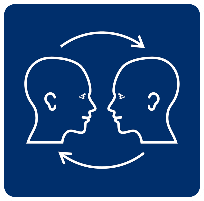A Newly Developed Computerised Accessible Receptive Language Assessment (CARLA)
Session
P.7
Poster
- Andrea Kirton (Barnsley Assistive Technology Team)
- Simon Judge (Barnsley Assistive Technology Team)
- Zoe Clarke (Barnsley Assistive Technology Team)
- Marcus Friday (Barnsley Assistive Technology Team)
Summary
[Note: The posters will be manned during refreshments and lunch breaks: 11.15-11.50; 12.45-13.45; 15.30-16.15.]
Speech and language therapists use a variety of published assessments in order to determine a child’s receptive language level. These assessments traditionally use drawings or objects which are chosen by hand pointing. These assessments are often adapted for children with physical disability by separating out the pictures and following the child’s eye gaze to determine their answer. The adaptation means the results are subjective, the accuracy is dependent on the therapist’s ability to follow the child’s eye pointing and any standardisation is no longer valid.
Method/Activities/Techniques
Having experienced these issues, the researcher initiated a project by auditing the current use of comprehension assessments. These findings were then used to develop a prototype of a computer based accessible receptive language assessment.
Results/Findings
The next stage of the project was to evaluate the feasibility of an assessment which can be accessed via switches, headmouse or eye gaze and where the child’s choices are registered by the computer and not interpreted by the assessor.
Conclusions
Following on from this previous project which was presented at CM2010, a final product has now been developed. This poster will present the features and design of the assessment and explain how this can benefit those with physical disability and be used as part of an AAC assessment. This new assessment is intended to benefit a range of client groups, in particular those with physical disabilities who are unable to access standard assessments.
Level of Session
Introductory
Age Group
Child
Adolescent
Interest
Primary school
Special school





